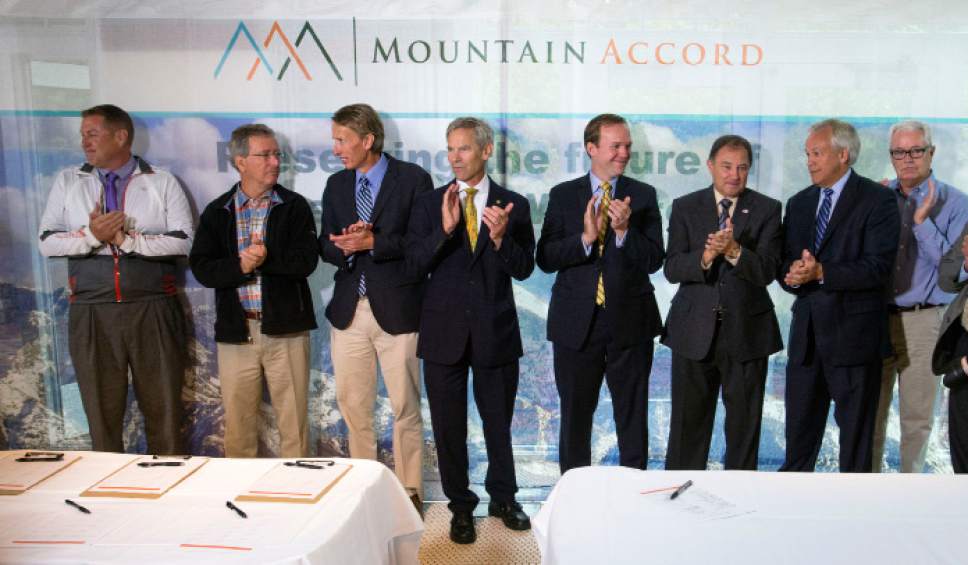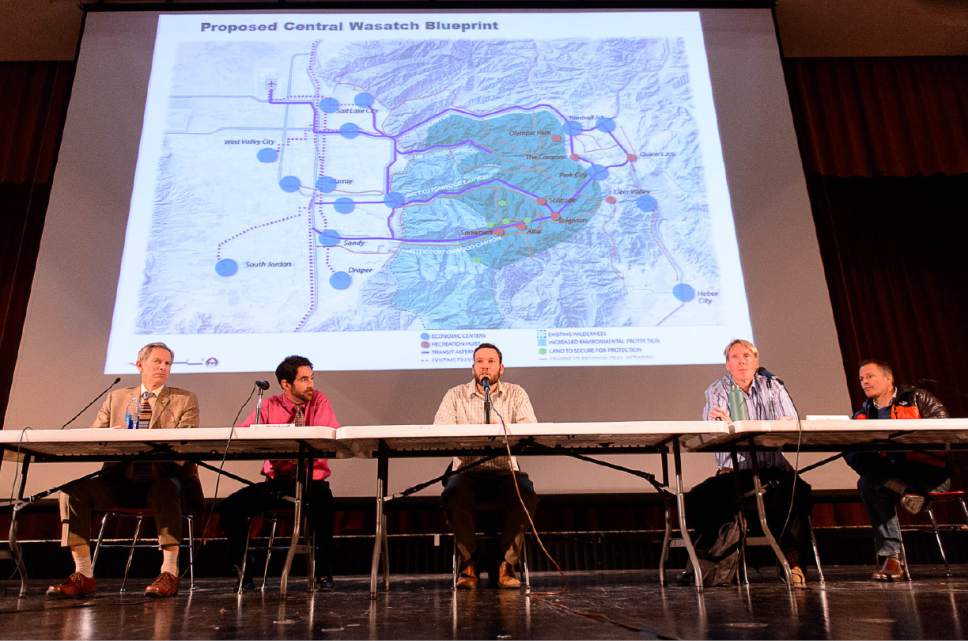This is an archived article that was published on sltrib.com in 2017, and information in the article may be outdated. It is provided only for personal research purposes and may not be reprinted.
The group created by local governments to plan for land use and population-related conflicts in the Wasatch Mountains includes private businesses, and therefore its work should be kept from public sight, Salt Lake County attorneys argued in court Thursday.
The Mountain Accord's website promises transparency.
But county attorneys representing the accord argued that the lawsuit brought by Big Cottonwood Canyon residents and landowners who say they weren't included in decision making should be dismissed because the accord is a program, not a public entity that can be sued under the Open and Public Meetings Act.
"One of the underlying issues here is that this Mountain Accord program was created between both public and private entities," said Salt Lake County Deputy District Attorney Jen Bailey. "That is something that the Open and Public Meetings Act would not apply to."
That's not how canyon landowners and the state auditor's office see it.
Norm Henderson, a resident of the Cardiff Canyon Owners Association, filed the lawsuit with his neighbors because they're interested in the documents created by consultants working for the accord on issues that affect the area around his house.
While the accord tried and failed to work with Congress on legislation guiding certain development in the area, Henderson is still interested in the results of studies and documents showing who was involved in the work and for what purposes.
"They totally excluded private landowners other than the ski resorts," Henderson said. "We're the ones that potentially have the most at stake because we own property and have cabins up there and all that."
Third District Judge Laura Scott asked Bailey whether local governments could avoid transparency by creating entities that include-private groups.
"Help me understand why the mere inclusion of the private entities who have a stake in the outcome ... fundamentally changes this in such a way that this is no longer a joint cooperating agreement and shouldn't be subject to the Open and Public Meetings Act," Scott said.
"Isn't that a simple way to circumvent the Open and Public Meetings Act?" she asked.
Bailey said she didn't believe the accord was created to circumvent the law.
"Mountain Accord itself had four different sections within where they emphasized … transportation, environment, recreation [and the economy]," Bailey said. "Private entities played a huge part in that."
State Auditor John Dougall's office weighed in in an October 2016 letter with its view that Mountain Accord was a public entity subject to the open meetings act.
William Fontenot, an attorney for the plaintiffs, said "If you're going to make decisions concerning land use in Utah, and establishing federal legislation, then you need to do it openly."
"You have an organization like Mountain Accord and they're coming out and publicly saying that [the act] doesn't apply to them, which is scary," Fontenot said. "How do we know what decisions are being made publicly and which are not?"
Scott said she would consider a motion by the county to dismiss the lawsuit in the next two months.
tanderson@sltrib.com Twitter: @TaylorWAnderson





